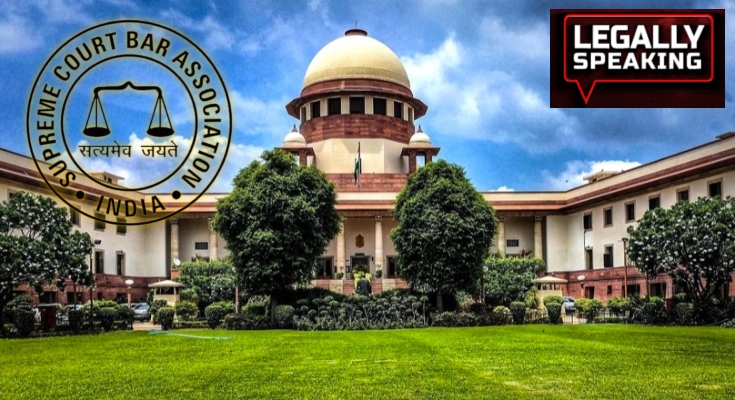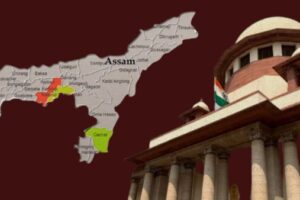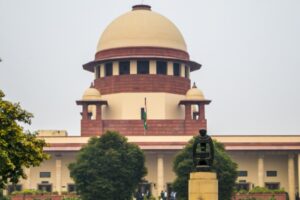
In a recent ruling the Supreme Court has mandated the convening of a Special General Meeting for the Supreme Court Bar Association (SCBA) by April 16 at Supreme Court Bar Library No.1. Additionally, it has clarified that SCBA members eligible to vote in its elections, as per SCBA rules, can participate in this meeting.
This directive came following an application filed by a bar association member through Advocate-on-Record Pravir Choudhary, seeking relaxation of norms for determining voter eligibility. The bench, comprising Justices Surya Kant and KV Viswanathan, expressed satisfaction with the applicant’s argument and upheld the rights of eligible members to participate in both the meeting and subsequent elections.
In a preceding development, the Court had directed SCBA members, including its president Adhish C Aggarwala, to provide suggestions for further reforms in the association’s election process. Subsequently, in January, the Court advised the Association to address all pertinent issues in its General Body Meeting.
The SCBA’s stance emphasizes that proposals for amending the election process require a requisition supported by a minimum of 150 members, subject to a vote in the General Body Meeting.
In light of these circumstances, the Court appointed a committee comprising Senior Advocates Shekhar Naphade, V. Giri, and S.B. Upadhyay to scrutinize all representations and requisitions submitted by members. The committee is also empowered to seek assistance from other SCBA members as deemed necessary.
All valid representations and requisitions received by the SCBA Executive Committee are to be presented in the Special General Meeting, as per the Court’s directive.
Furthermore, the Court has requested observers to submit their report before the next hearing scheduled for April 19.
The ruling stems from the 2011 case of Supreme Court Bar Association v. BD Kaushik, where the Court upheld an amendment preventing members from other bar associations from contesting or voting in SCBA elections. This ruling, based on the ‘one bar one vote’ principle, led to the formation of an implementation committee to determine voter eligibility criteria.
However, ongoing challenges, including malfunctioning entry gate punching machines and the transition to virtual court proceedings due to COVID-19, prompted Advocate Surender Kumar Tyagi to file an application seeking relaxation of eligibility criteria for the 2023 elections. Tyagi argued that these circumstances unfairly disadvantaged regular practitioners and violated their right to participate in SCBA affairs.
In response, the Court’s recent ruling reaffirms the importance of democratic participation within the SCBA, ensuring eligible members can exercise their rights effectively.





